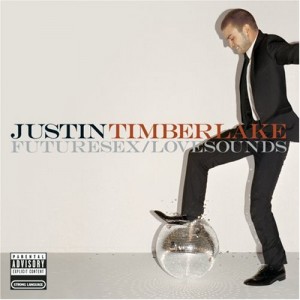If you follow my Twitter, you’ve likely seen my screed on this whole NPR Intern/David Lowery thing. The whole thing’s gone viral, but I’m not really sure why. It’s the same old tired argument we’ve been having for about ten years now.
Wait, hold on. Let me fill you in.
So this intern at NPR’s All Songs Considered, Emily White, posted a blog on their site revealing the vast majority of music acquisition in her life has been digital. She’s 21 years old, and like mostly anyone in their twenties or younger, this is not a revolutionary confession. She’s gotten her music the same way nearly all of us did:
I didn’t illegally download (most) of my songs. A few are, admittedly, from a stint in the 5th grade with the file-sharing program Kazaa. Some are from my family. I’ve swapped hundreds of mix CDs with friends. My senior prom date took my iPod home once and returned it to me with 15 gigs of Big Star, The Velvet Underground and Yo La Tengo (I owe him one).
During my first semester at college, my music library more than tripled. I spent hours sitting on the floor of my college radio station, ripping music onto my laptop. The walls were lined with hundreds of albums sent by promo companies and labels to our station over the years.
All of those CDs are gone. My station’s library is completely digital now, and so is my listening experience.
Sound familiar? Yeah, because we all did the EXACT same thing. In fact, we probably downloaded them illegally more often from Kazaa, Audiogalaxy 1.0, Ares, Morpheus, BitTorrent, and, yes, even Napster. The most surprising thing she said, I thought, was that she only had 11,000 songs. In a digital world, where an iPod can hold well over 40,000 songs, that’s a small collection.
Emily stated she envisions a future with a database of every song ever, available wherever she went, with artists being paid on a per-play basis. She basically described Spotify and other streaming-based services that exist, albeit with a flawed compensation strategy. This has been well-documented, as David Lowery points out, but I’m getting ahead of myself.
So this ambitious, idealistic, honest intern posts her thoughts and vision for a brighter tomorrow in the music business. And what does the former Cracker/Camper Van Beethoven musician do? He shits all over her. In a well-written, eloquent, well-intentioned way of course. But he does so the same way every old fogey longing for the good ol’ days of physical distribution has for the past decade.
He goes on a lecture briefly explaining how mechanical royalties work, what an “advance” is, he rattles off some statistics of how album sales have declined, as if Emily doesn’t already know this. And then, he briefly takes the low road and mentions two suicides of notable musicians that were struggling financially. You know, because that’s directly related to this conversation (it’s not). Moving on…
He then gets to the beef, beginning with this age-old “it’s always been this way” premise:
“The fundamental shift in principals and morality is about who gets to control and exploit the work of an artist. The accepted norm for hudreds of years of western civilization is the artist exclusively has the right to exploit and control his/her work for a period of time.â€
Certainly. Except everything has changed. Technology has changed. The copyright system is in major need of reform. A new emerging generation doesn’t look at this issue the same way. At all. In his rebuttal, Wesley Verhoeve puts it best:
I’d like to remind David for hundreds of years the accepted norm was that the earth was flat, and that women should probably not vote. Lets not get into a debate on the severely broken copyright system, and just accept that it’s severely broken. We change traditions once we gain new insights.
Lowery points the finger at White when she claims her generation won’t pay for albums, but convenience. What’s inconvenient about iTunes, he asks? Nothing, but there’s something arguably even more convenient out there: streaming-based services. Lowery finally gets to those, but of course, the old guy isn’t too fond of them, for moral reasons, naturally:
We are being asked to change our morality and principals to match what I think are immoral and unethical business models….What the corporate backed Free Culture movement is asking us to do is analogous to changing our morality and principles to allow the equivalent of looting.
Right, Dave. Because in our free, capitalist society, someone is demanding at gunpoint you put your music on Spotify. Hey, guess what I’m listening to right now on Spotify? “Take the Skinheads Bowling.” You’re welcome.
The internet is full of stories from artists detailing just how little they receive from Spotify. I shan’t repeat them here. They are epic. Spotify does not exist in a vacuum. The reason they can get away with paying so little to artists is because the alternative is The ‘Net where people have already purchased all the gear they need to loot those songs for free. Now while something like Spotify may be a solution for how to compensate artists fairly in the future, it is not a fair system now.
Like I said, and I have said, everyone knows major labels own a 30%+ share of Spotify. Everyone knows their revenue scheme is godawful. Play a song 800 times, and that’s $1 of royalties. Pathetic.
Spotify and the other streaming-based services aren’t perfect. But they’re convenient. And they’re a start. And they’re the future. I’ll let Verhoeve have the floor on this one:
David goes on to calculate a back of the envelope number based on Emily’s 11,000 song library, and extrapolates that over time, concluding that she should pay around $18 dollars a month to turn her consumption into an “ethical oneâ€. This is where he could’ve segued into the solution proposed by Emily, the Spotify-like library in the sky that synchs to everything everywhere, but he doesn’t.
No, instead, Dave proposes donating to a charity, or campaigning against corporate exploiters, or what Emily said her generation would never do, which is buy albums.
For Lowery, this is about ethics and morals and rebellion against “the man.” For Emily, it’s about a future business model that successfully adapts to the behaviors of consumers in the 21st century. So, yeah, Lowery can’t see the forest for the trees, as the adage goes.
Bob Lefsetz’s rebuttal is probably the best one I’ve read thus far, though his focus is on quality of music. It’s the typical Lefsetz argument: make music people want to hear, and they will ride against the trend. I call it the Adele Method. And while I disagree with Lefsetz’s obvious distaste for Lowery’s excellent music, his ability to understand we can’t go back to the old way is refreshing.
I believe artists should be paid. But that does not mean they should be paid the same way they used to be….To be fighting file-sharing is akin to protesting dot matrix printers. File-trading is on its way out. Because it takes too much time to do it. And you don’t fight piracy with laws, but economic solutions. It doesn’t pay to steal if you can listen instantly on Spotify and its ilk.
Bingo. Shaming the young generation into reverting back to a business model you understand won’t work. Accepting the future and shifting towards it is the obvious answer to the problem of digital music compensation. It’s blatantly obtuse for anyone, especially someone who has used Spotify, to think otherwise. There’s no reason to go back. And people won’t. Adapt or die.
Lefsetz continues:
That intern David Lowery is beating up on has no power. He’s wasting his time. And you’re high-fiving him as if it all makes a difference. You’re involved in a circle jerk anybody with the chance of making a difference is ignoring….Why do musicians think they can shame people into doing the right thing?…[T]he public is gonna say that fourteen dollars for a CD with one good track is stupid.
You start first with a killer product. And then you leverage this for change. Knowing that economics are more powerful than emotions.
David Lowery is not gonna make a difference. He’s speaking in an echo chamber. He’s got the right to do this, but that does not mean we should applaud it.
He’s right. The artists have suffered financially with the collapse of the CD model/Napster. But with destruction comes opportunity… Don’t forget, the record companies sued to kill the Diamond Rio, the predecessor of the iPod….Just hang in there. Don’t throw the baby out with the bathwater. Spotify pays most of its revenues to rights holders. The fact that labels come before acts and they don’t distribute all their income… Meet the new boss, same as the old boss.
I’ll leave you with a quote from Lowery’s post, probably the most-quoted part of it I saw. It’s a sound byte that people latch onto, and rightly so: it’s pretty much Lowery’s entire point.
Networks: Giant mega corporations. Cool! have some money!
Hardware: Giant mega corporations. Cool! have some money!
Artists: 99.9 % lower middle class. Screw you, you greedy bastards!
Congratulations, your generation is the first generation in history to rebel by unsticking it to the man and instead sticking it to the weirdo freak musicians!
I am genuinely stunned by this. Since you appear to love first generation Indie Rock, and as a founding member of a first generation Indie Rock band I am now legally obligated to issue this order: kids, lawn, vacate.
You are doing it wrong.
At least he knows he’s old. But in making his point, Lowery misses the biggest one: this girl, and this young generation of music lovers, are all on his side. NO ONE thinks artists shouldn’t be paid. The question is how, but we already know what the answer shouldn’t be in these changing times. Out with the old, in with the new.
























